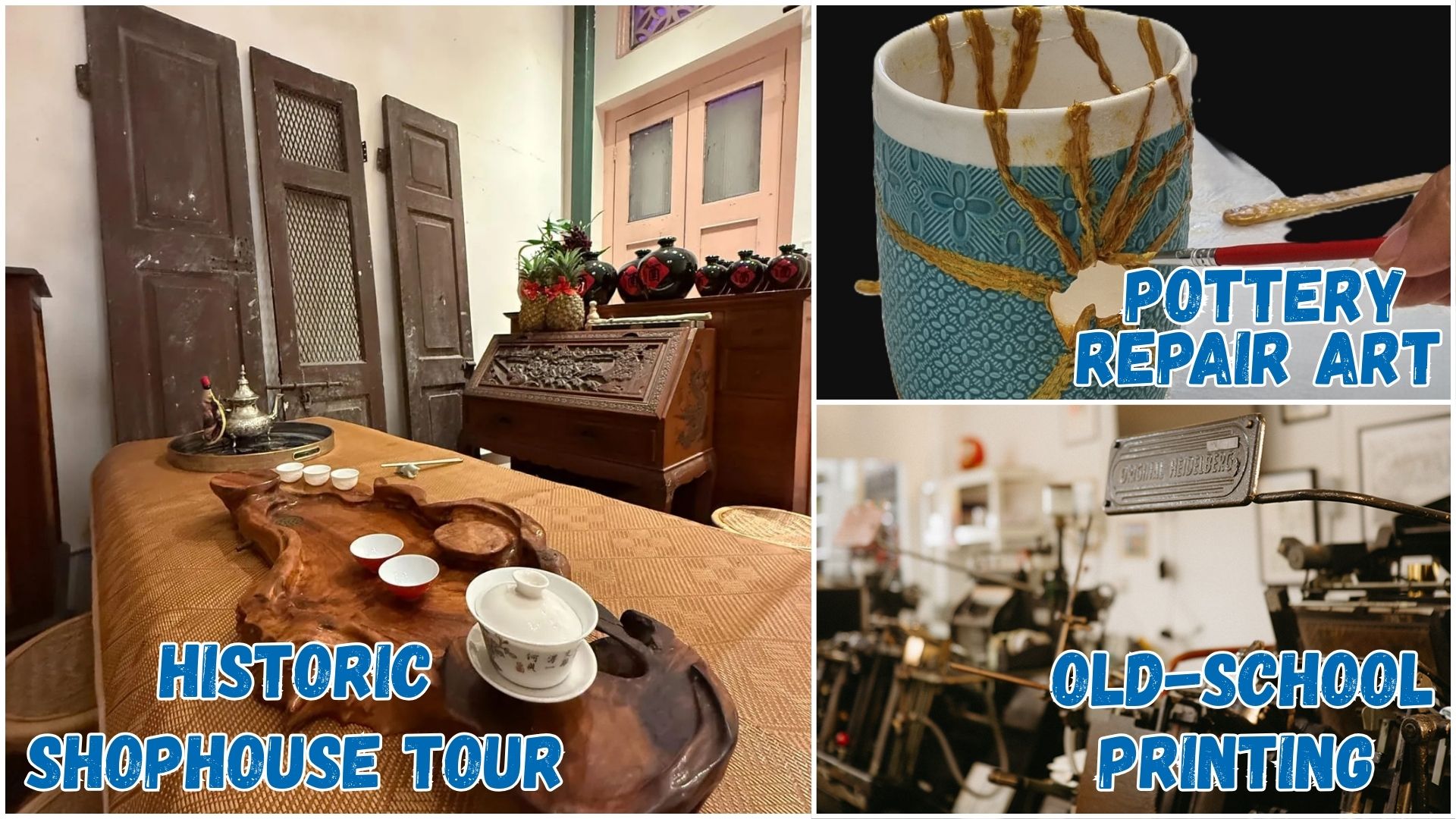5 Reasons You Should Learn Dialects In Singapore
The importance of dialects in Singapore is often overlooked. Here are the top 5 reasons you should learn dialect.
1. Learn Dialect to Build Meaningful Bonds with Grandparents
Recall a situation where you laughed really hard. Try sharing the story in your dialect.
Could you articulate your thoughts? Were you skipping many details simply because you could not find the words? Did you give up sharing halfway?
Now, when was the last time you spoke to your grandparents in their language? How many of their stories have you missed?
It’s time to learn dialect, so that you can give your grandparents a chance to speak for themselves and share their adventures you. Your grandparents deserve to be heard.
2. Learn Dialect to Keep our Culture and Languages Alive
Did you know:
- The term “dialect” in Singapore context in a misnomer. “Dialect” seems to suggest that it is a subset of the Mandarin language, but truth is, the “dialects” that we know in Singapore – Hokkien, Teochew & Cantonese – are languages in their own right.
- In Singapore, “Hokkien” is named after the Fujian province, even though it is not a common tongue throughout the province. Internationally, this language is better known as the Minnan language.
- Teochew city sits in Guangdong Province and the language is a variety of Minnan. About half of all Chinese written characters can be read differently in Teochew in two or more ways.
- There are many interesting slangs that are unique to Cantonese. For example, we use “煲電話粥” (bou din waa zuk) to refer to someone who talks on the phone for a long time. Literally, it means “to boil telephone congee”.
Undeniably, language is a tangible symbol of cultural identity. Many verbal expressions reflect a way of life or the history of a community. We can better appreciate and understand traditions, literature, films and music, without losing any essence via translation.
In Singapore, with English as the main language and the 1979 Speak Mandarin Campaign, dialects are, unfortunately, dying languages. As such, if getting in touch with your roots matter to you, it is never too late to learn dialect. You can still find back that sense of common identity and belonging.

3. Learn Dialect to Save Lives
Are you a healthcare professional, social worker or a volunteer who need to interact frequently with a dialect-speaking individual?
Imagine what would have happened if you had limited vocabulary in dialects. Every time you meet a senior, the conversations could not go further than these phrases,
“Pak zum” (打针, Injection time)
“Bang sai bueh?” (大便了吗? Have you taken a dump?)
“Li jiak yoh bo?” (你吃药了吗? Have you taken your medicine?)
Put yourself in their shoes. How would you feel? Unable to communicate effectively, will you still trust the medical diagnosis? Will you share your inner thoughts on how you are truly coping with the illness?
Being able to connect in the same language makes interaction a more human experience. You break down the walls of the individuals who require help, allowing them to open up to you. Consequently, you empower them to make better-informed decisions about their health.

4. Learn Dialect to Build Rapport with Clients and Colleagues
Based on General Household Survey 2015, 12.2% of Singapore’s population speaks Chinese dialect most frequently at home. This includes 205,300 Hokkiens, 86,500 Teochews and 111,200 Cantonese. If you are in public service (e.g. police force), a good command of dialects is essential to serve the needs of these citizens.
Similarly, if you are taking on front-line roles (e.g. for retail sales, real estate agents, insurance agents), dialect-speaking individuals will inevitably form part of your targeted customer group. Besides common greeting terms such as “Have you eaten?“, are you able to build a rapport quickly by showing empathy or sharing similar experiences in their language? Are you be able to explain technical terms and conditions coherently, so that you reduce the risk of misrepresentation?
Finally, do you have colleagues who are more comfortable speaking in dialects? The most effective way to establish good interpersonal relationships with them is to speak their language. Learning a dialect in Singapore helps you to communicate skilfully and build stronger relationships in the workforce.

5. Learn Dialect to Broaden Your Horizon Overseas
Learn Dialect for Job Relocation
Hong Kong’s an important financial hub for Asia, and often, a top choice for job relocation for bankers and lawyers. If you would like to work in Hong Kong, speaking Cantonese would provide you with a great competitive advantage. To begin with, you can communicate fluently with your secretary and colleagues. You can also make local friends easily, immerse yourself in Cantonese culture and adapt to the foreign country faster. The same applies to picking up Hokkien, if you are seeking a job in Taiwan’s manufacturing and industrial sectors. Now, wouldn’t you like to learn dialect to have more career choices?
Learn Dialect for Travel
Are you an avid traveller? How do you like the feeling of being unable to speak the local language in a foreign country? Have you found yourself in situations where you were unable to ask for directions, ordered the wrong food or being ripped off? The only thing you could do is to give a weak embarrassed smile and feel stupid. Now, what if you can speak a language that someone can understand?
There are around 60 million Cantonese speakers in the world. Besides Hong Kong, Macau and Malaysia, did you know there are at least 565,000 Canadian residents who reported Cantonese as their native language? There are also an estimated of 15 million Teochew people in the world, including Thailand, Cambodia and Laos. For example, in Bangkok, Teochew is still spoken along the older ethnic Chinese Thai citizens!
Learn dialect now. You’ll never know who you will meet in your travels. The common language will help to make the experience so much more memorable. You foster new friendships, exchange cultures and open your eyes to fresh perspectives of the world!

This article has been reproduced with the kind permission of LearnDialect.sg. The original article can be found here.
ICYMI, read our interview with Ski Yeo and Eugene Lee, who started LearnDialect.sg to help healthcare professionlals, social workers and volunteers better serve dialect-speaking seniors.
The husband-and-wife duo also created novel coronavirus-related precautionary videos in Hokkien, Teochew, Cantonese and Hainanese for seniors who don't have a strong command of English or Mandarin.
For the latest updates on Wonderwall.sg, be sure to follow us on Facebook and Instagram. If you have a story idea for us, email us at [email protected].











